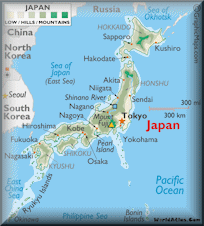-
-

Please Wait...
-
.jp Japanese Domain Country Information - .jp Japan Country Information
.jp

Price and Requirements for .jp Domains
Registration Pricing
- 1 Year 49.00 USD
- 2 Years 98.00 USD
- 3 Years 147.00 USD
- 4 Years 196.00 USD
- 5 Years 245.00 USD
- 6 Years 294.00 USD
- 7 Years 343.00 USD
- 8 Years 392.00 USD
- 9 Years 441.00 USD
- 10 Years 490.00 USD
Application Fee
Registration Time Frame
Instant
Requirements
Yes Details Are Individual .jp domain registrations allowed?
Yes Details Company or legal entities registrations allowed for .jp?
Yes Details Are there requirements, documents, or information needed for .jp?
Yes Details Are some .jp domain names restricted?
No Details Does .jp domain have a special use?
No Details Other information I need to know about .jp?
No Details Are there any additional fees for .jp?
No Details Do I need a trademark/brand name to register .jp?
No Details WHOIS Privacy service available?
![]() Trustee / Proxy service offered? Fees?
Yes
Details
Trustee / Proxy service offered? Fees?
Yes
Details
.jp Japan Country Information
Japan is an island nation in East Asia. Located in the Pacific Ocean, it lies to the east of the Sea of Japan, China, North Korea, South Korea and Russia, stretching from the Sea of Okhotsk in the north to the East China Sea and Taiwan in the south. The characters that make up Japan's name mean "sun-origin", which is why Japan is sometimes referred to as the "Land of the Rising Sun".
Japan is an archipelago of 6,852 islands. The four largest islands are Honshū, Hokkaidō, Kyūshū and Shikoku, together accounting for ninety-seven percent of Japan's land area. Japan has the world's tenth-largest population, with over 127 million people. The Greater Tokyo Area, which includes the de facto capital city of Tokyo and several surrounding prefectures, is the largest metropolitan area in the world, with over 30 million residents.
Archaeological research indicates that people lived in Japan as early as the Upper Paleolithic period. The first written mention of Japan is in Chinese history texts from the 1st century AD. Influence from other nations followed by long periods of isolation has characterized Japan's history. In the late 19th and early 20th centuries victory in the First Sino-Japanese War, the Russo-Japanese War, and World War I allowed Japan to expand its empire during a period of increasing militarism. The Second Sino-Japanese War of 1937 expanded into part of World War II, which came to an end in 1945 following the atomic bombings of Hiroshima and Nagasaki. Since adopting its revised constitution in 1947, Japan has maintained a unitary constitutional monarchy with an emperor and an elected parliament called the Diet.
A major economic power, Japan has the world's third-largest economy by nominal GDP and fourth-largest economy by purchasing power parity. It is also the world's fourth-largest exporter and fourth-largest importer. Although Japan has officially renounced its right to declare war, it maintains a modern military force in self-defense and peacekeeping roles. After Singapore, Japan has the lowest homicide rate (including attempted homicide) in the world. According to both UN and WHO estimates, Japan has the longest life expectancy of any country in the world. According to the UN, it has the third lowest infant mortality rate.
Japan has a total of 6,852 islands extending along the Pacific coast of East Asia. The country, including all of the islands it controls, lies between latitudes 24° and 46°N, and longitudes 122° and 146°E. The main islands, from north to south, are Hokkaidō, Honshū, Shikoku and Kyūshū. The Ryūkyū Islands, including Okinawa, are a chain to the south of Kyūshū. Together they are often known as the Japanese Archipelago. About 73 percent of Japan is forested, mountainous, and unsuitable for agricultural, industrial, or residential use. As a result, the habitable zones, mainly located in coastal areas, have extremely high population densities. Japan is one of the most densely populated countries in the world.
The islands of Japan are located in a volcanic zone on the Pacific Ring of Fire. They are primarily the result of large oceanic movements occurring over hundreds of millions of years from the mid-Silurian to the Pleistocene as a result of the subduction of the Philippine Sea Plate beneath the continental Amurian Plate and Okinawa Plate to the south, and subduction of the Pacific Plate under the Okhotsk Plate to the north. Japan was originally attached to the eastern coast of the Eurasian continent. The subducting plates pulled Japan eastward, opening the Sea of Japan around 15 million years ago. Japan has 108 active volcanoes. Destructive earthquakes, often resulting in tsunami, occur several times each century. The 1923 Tokyo earthquake killed over 140,000 people. More recent major quakes are the 1995 Great Hanshin earthquake and the 2011 Tōhoku earthquake, a 9.0-magnitude quake which hit Japan on March 11, 2011, and triggered a large tsunami.
.jp Japan Domain Name - Country Information
| Country Domain | Japan Domain Name .jp |
|---|---|
| Country Information | Japan Domain Country Information .jp |
| TLD Bulk & Advanced Search | Japan Bulk Domain Registration .jp |
| WhoIs Server | .jp Whois Server Information |
| Domain Renewals | Renewal Japanese Domain .jp |
| Domain Transfer | Transfer Domain .jp |
| Domain Hosting | .jp Japan Web Hosting |
| SSL Certificates | SSL Certificates |
| Email Services | .jp Japan Email Services |
| Domain FAQ | .jp Domain Registration FAQ |
Japan Country Information Search Terms
Japanese Domain Country Information Japanese Domain Registrar Japanese World Wide Domain Registration Japanese Country Code Top Level Domain .jp Domain Information Japanese Country Information Japan Country Information



















